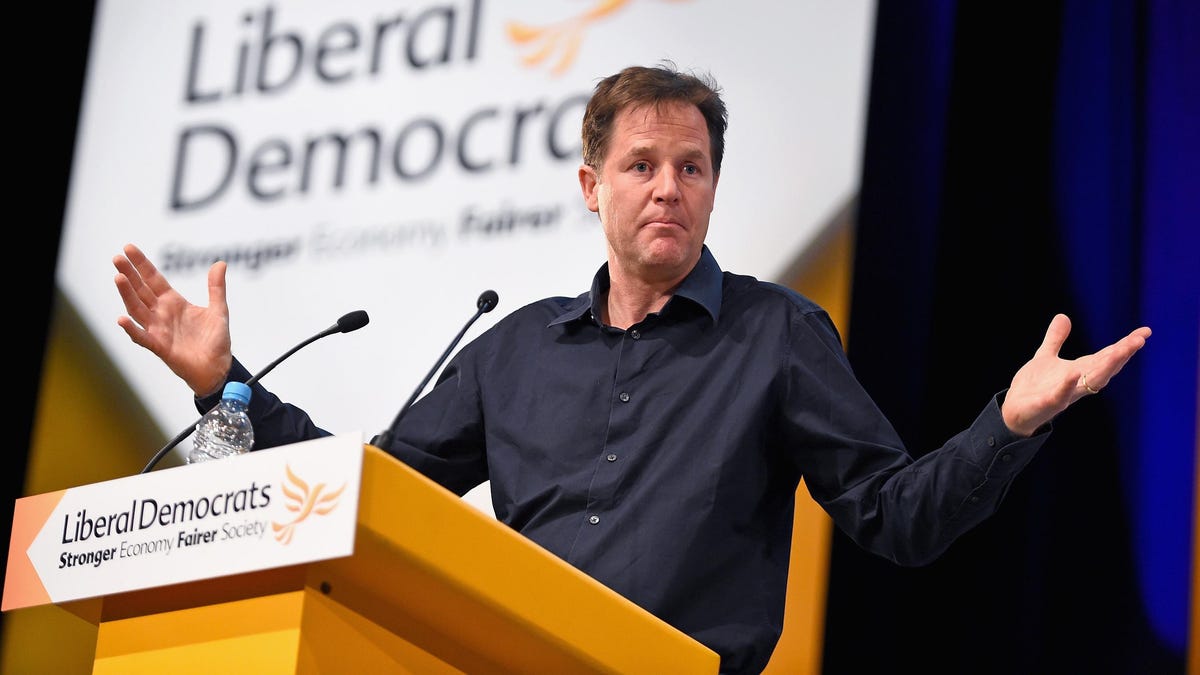
Meta’s President of Global Affairs and top corporate punching bag Nick Clegg decided to abruptly bail on a hearing in Canada’s House of Commons after lawmakers changed the event’s title to be critical of the social media company. Rather than face a clearly antagonistic audience eager to grill Clegg on his employer’s impact on news publishers, Clegg decided to pack up his bags and go home with his tail between his legs. Now, Meta’s threatening to cut Canada off from new links altogether if the contested legislation passes.
The hearing, arranged by Canada’s Heritage Committee was meant to serve as a platform to debate the hotly contested “Online News Act,” which would force Facebook and other internet companies to pay publishers for their content. Clegg initially agreed to attend the hearing when it was titled “The Response of Companies in the Information Technology Sector to Bill C-18.” That title suddenly changed last Thursday, however, and morphed into the much more combative “Tech Giants’ Current and Ongoing Use of Intimidation and Subversion Tactics to Evade Regulation in Canada and Across the World.” Clegg apparently wanted no part of that likely brutal exchange.
Advertisement
“Clearly, it would be a very different hearing to the one Nick Clegg was invited to,” Meta said in a statement explaining his non-appearance. “As such, we have notified the committee that he will no longer be appearing. Meta representatives in Canada will attend the hearing.” One person from Meta did attend the hearing. The Heritage Committee clerk responsible for maintaining records tried to awkwardly explain Clegg’s sudden no-show to upset lawmakers during the hearing Monday.
“As the events unfolded I was instructed to alter the title of the committee’s study from a generic description to the exact language of the motion which presented a different framing,” the clerk said. “[That] was perhaps unpalatable to Sir. Clegg.”
Advertisement
What are Meta and Canda beefing over?
The bill in question would force Meta and other similar-sized internet companies to pay news publishers when they reproduce their content. Companies that refuse to pay publishers for their news links could open themselves up to binding arbitration. Supporters of the bill, which is modeled after similar Australian legislation, say it’s necessary to help local news publications devastated by social media’s ascent. Opponents, like Meta and Google, say the bill amounts to a “link tax.” The Australian bill was watered down after Facebook blocked news links on its social network.
Advertisement
Meta posted the opening statement Clegg would have given during the hearing. In it, the executive took his most aggressive, hard-line stance against the bill so far. If C-18 were to pass, Clegg said, Meta will respond by cutting off access to news links Canada.
“We’ve taken the difficult decision that if this flawed legislation is passed, we will have to end the availability of news content on Facebook and Instagram in Canada,” Clegg wrote.
Advertisement
Clegg claims the bill is based on a “fundamentally flawed premise” that Meta unfairly benefits from publishers’ work. In reality, according to Clegg, publishers choose to share their content with Meta because it drives more traffic to thier website. That simple explanation, however, flies in the face of years of reports documenting the ways social media has contributed to a gutting of newsrooms across most of North America in the past decade. Clegg went on to claim Meta’s users “don’t come to us for news,” despite polling showing around half of all Canadians receive news via social media.
“The world is constantly changing and publishers, like everyone else, have to adapt,” Clegg said. “Asking a social media company in 2023 to subsidize news publishers for content that isn’t that important to our users is like asking email providers to pay the postal service because people don’t send letters anymore.”
Services Marketplace – Listings, Bookings & Reviews